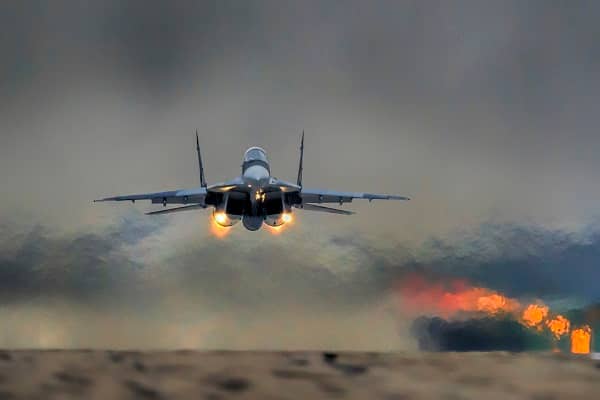In an inspirational and moving speech to UK MPs yesterday, Ukrainian President Volodymyr Zelensky invoked Shakespeare by asking: “To be or not to be? Now I can give you a definitive answer: it’s definitely yes; to be”. He carries on – because he has to.
The humanitarian disaster in Ukraine is sending shockwaves through financial markets, with fears of a global recession, which people will also have to try to navigate – because they have to.
Richard Hunter, Head of Markets, interactive investor, says: “The oil price has risen again on prospects of diminishing supply and now stands ahead by 68% in the year to date. With the EU also looking to end its reliance on Russian gas, the near-term prospects for inflation remain extremely high and on top of what were already elevated levels. In the meantime, there is clearly a scramble for replacement supplies which extends beyond energy to the likes of metals and food in some areas. The FTSE100 remains down by 4.2% in the year to date. As with markets globally, the apparent lack of light at the end of the tunnel in terms of the conflict is keeping a firm lid on sentiment.”
Global Financial Crisis market low anniversary
With a deteriorating global financial backdrop, today, 9 March, also marks the 13th anniversary of the Global Financial Crisis market low, when the FTSE 100 index traded as low as 3,460.
Regular investing versus lump sum investing through volatile times
New research by interactive investor, the UK’s second biggest retail investment platform, looks at how regular investors fared compared to lump sum investors during the Global Financial Crisis.
Lump-sum investors commit all their money in one go, so have a greater exposure to market drops (as well as market increases). Regular investors, by contrast, are those that develop the habit of investing money each month, regardless of market conditions, and this can help smooth out some of the highs and lows in the price of shares.
With uncertainty continuing to be the new norm for investors in 2022 already, last month interactive investor outlined how to navigate anxious markets. A key theme we emphasised was having a long-term investment horizon and trying to avoid panic buying/selling, or impulsive investment decisions.
Lee Wild, Head of Equity Strategy, explains: “Making investment decisions isn’t always easy, but volatile stock markets can make the process much harder. An extra element is added to your usual due diligence when it’s armed conflict that’s driving sentiment. History tells us that, despite considerable human suffering, we carry on. It’s the same with financial markets. Stock prices have recovered from every war, bar none – the Second World War, Korea, the Gulf War, Afghanistan, Iraq, all of them. Only the time element changes.
“It’s the same for other massive social and economic events. As the 13th anniversary of the Great Financial Crisis arrives, it’s worth remembering that the FTSE 100 traded as low as 3,460 on 9 March 2009. Even after the recent crash, it’s more than doubled in value. Include dividends and total return is over 200%.
“Market volatility can make stock picking more stressful, but there are simple ways to overcome it. Unless you get lucky and invest a lump sum at the bottom of the market, you run the risk of losing a lot of value, often very quickly. Using up all of your cash reserve leaves no funds to deploy if this happens. It’s often better to spread your investments over time. Regular investing both reduces risk and can be hugely profitable when money invested on the way down generates handsome returns on the way up.”
How have regular investors fared versus lump sum investors during the Global Financial Crisis?
ii looked at how regular investors, putting away £50 a month, fared against lump sum investors during the Global Financial Crisis.
According to ii data, looking at the FTSE World Index, investors who invested a lump sum of £800 at the start of the Global Financial Crisis between 1 October 2007 – 28 February 2009 would have seen their investment shrink to £545 by the end of the period. Those who drip fed that £800 investment on a monthly basis, in £50 per month instalments, would have still seen their investment shrink – but not as much – to £646.80.
For investors who held on for the long term, investing from 1 October 2007 to 4 March 2022, it is lump sum investors who would have performed the best, because more of their money is being put to work in the stock market for longer. But they would have done so with a higher risk profile. A lump sum investment since the start of the financial crisis until 4 March 2022 (£8,650) in the FTSE World has grown to £32,955.40, compared to the £22,190.50 equivalent drip fed into markets on a monthly basis, in £50 per month instalments.
The FTSE 100 has massively underperformed the FTSE World since the start of the financial crisis, but regular investing principle during that bumpy phase for markets would still have lowered your risk profile. Regular investors that put away £50 a month from the start of the Global Financial Crisis (on 1st October 2007) until 28 February 2009 (an investment of £800) would have had £617.90 compared to £501.60 if the investment had been made as a £800 lump sum at the start of the period.
Regular investors that put away £50 a month from the start of the Global Financial Crisis (on 1st October 2007) until 4 March 2022 would be looking at an investment worth around £13,279. Those that invested the equivalent lump sum (£8,650) at the start of the period, and held their nerve, would have made £16,104.






Leave a Comment